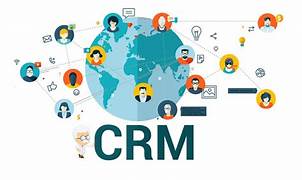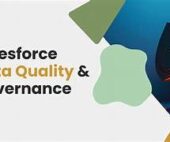Salesforce has transformed the way businesses manage customer relationships, sales, and marketing. Its capabilities extend into the events industry, enabling seamless integration for event planning, marketing, sales, and attendee engagement.
By leveraging Salesforce, event organizers can streamline lead management, automate marketing campaigns, track event performance, and enhance attendee experiences. This guide explores how Salesforce can optimize event success and drive higher ROI.
Managing Leads with Salesforce
Effective lead management is critical to maximizing event ROI. Salesforce offers powerful tools to streamline lead capture, scoring, nurturing, segmentation, and tracking—helping sales teams convert attendees into customers.
Seamless Lead Capture
Salesforce integrates with event registration forms, mobile apps, and onsite check-in systems to:
- Centralize Attendee Data: Automatically collect and store lead information in one place.
- Reduce Manual Effort: Eliminate the need for spreadsheets or manual data entry.
- Enhance Data Accuracy: Ensure consistent and error-free lead collection.
A centralized approach provides a 360-degree view of each attendee, empowering sales and marketing teams to act strategically.
AI-Powered Lead Scoring
Salesforce’s AI-driven lead scoring prioritizes leads by tracking:
- Engagement Levels: Monitors session participation, booth visits, and networking activity.
- Demographics & Firmographics: Assesses attendees based on industry, job role, and company size.
- Past Interactions: Identifies repeat attendees and prior engagements to gauge interest levels.
This data-driven approach helps sales teams focus on the most promising leads for personalized follow-ups.
Automated Lead Nurturing
Salesforce automation tools keep leads engaged post-event through:
- Personalized Email Sequences: Sends tailored follow-ups based on attendee interests and behaviors.
- Triggered Campaigns: Nurtures leads with relevant content, invitations, and offers.
- Engagement Tracking: Monitors email opens, click-throughs, and responses to refine messaging strategies.
Advanced Lead Segmentation
Salesforce enables lead categorization for targeted outreach:
- First-Time Attendees: Provide introductory content.
- VIPs & Decision-Makers: Offer exclusive networking opportunities.
- Returning Participants: Share insights from past events and highlight new features.
Tracking Sales Opportunities with Salesforce
Beyond lead management, Salesforce empowers event teams with tools to monitor revenue-generating opportunities, such as ticket sales, sponsorship deals, and exhibitor partnerships.
Comprehensive Opportunity Management
Salesforce enables tracking of every stage of the sales process, including:
- End-to-End Tracking: Monitors ticket purchases, sponsorship acquisitions, and exhibitor sign-ups.
- Deal Status Updates: Keeps tabs on negotiations, pending contracts, and renewals.
- Automated Follow-Ups: Triggers reminders for sales reps to nurture potential deals.
Real-Time Sales Pipeline Visibility
Salesforce’s pipeline management tools allow teams to:
- Gain Instant Insights: Monitor deal progression and identify potential roadblocks.
- Forecast Revenue Accurately: Predict sales outcomes based on pipeline data.
- Adjust Strategies in Real Time: Identify underperforming areas and refine sales approaches.
Customizable Sales Reporting
Salesforce reporting capabilities help event organizers:
- Measure Sales Performance: Track conversion rates, deal sizes, and close times.
- Identify High-Performing Channels: Analyze which ticketing sources and sponsorship packages drive revenue.
- Optimize Future Events: Use data-driven insights to refine sales strategies and event offerings.
Automating Event Marketing Tasks with Salesforce
Marketing automation is key to scaling outreach, enhancing engagement, and driving conversions. Salesforce provides tools that streamline marketing efforts, personalize communication, and measure campaign success.
Email Marketing Automation
Salesforce automates email campaigns to ensure timely communication:
- Automated Invitations & Confirmations: Sends event invites, registration confirmations, and reminders.
- Personalized Follow-Ups: Tailors post-event emails with session highlights and survey links.
- Behavior-Based Triggers: Automates email sequences based on attendee actions.
Social Media Integration & Management
Salesforce allows teams to manage and track social media engagement from one platform:
- Scheduled Posts: Automates social media content across LinkedIn, Twitter, Instagram, and Facebook.
- Engagement Tracking: Monitors interactions and social sentiment.
- ROI Analysis: Measures campaign effectiveness and identifies high-performing channels.
Integrating Salesforce with Event Technology
Seamless integration between Salesforce and event technology centralizes data, improves efficiency, and enhances engagement.
Event Management Platform Integration
Salesforce integrates with platforms like Cvent, Bizzabo, and Eventbrite to enable:
- Real-Time Data Sync: Automatically updates attendee information and engagement data.
- Streamlined Ticketing & Check-Ins: Connects ticketing systems for instant access to attendee lists.
- Enhanced Reporting: Consolidates event data with CRM insights for performance tracking.
Mobile Event Apps & On-Site Engagement Tools
Syncing Salesforce with mobile event apps provides real-time insights and tracking:
- Instant Lead Capture: Exhibitors can scan badges and log leads instantly.
- Session & Booth Tracking: Monitors attendee participation for better follow-ups.
- Live Polling & Q&A Data Collection: Captures audience interactions for post-event analysis.
Marketing Automation Tool Integrations
Salesforce enhances marketing efficiency by integrating with platforms like HubSpot, Marketo, and Pardot:
- Automating Lead Nurturing: Triggers personalized email sequences based on attendee actions.
- Improving Attribution Tracking: Identifies marketing touchpoints that drive conversions.
- Aligning Sales & Marketing Efforts: Ensures sales teams have access to attendee engagement data.
Reporting and Analytics: Unlocking Actionable Insights
Salesforce provides robust analytics to help organizers measure performance, optimize strategies, and maximize ROI.
Customizable Reports for Event Insights
Salesforce enables comprehensive reporting on:
- Attendee Behavior: Tracks session attendance and networking activities.
- Lead Conversion: Analyzes the journey from lead capture to conversion.
- Sponsorship Effectiveness: Measures sponsor visibility and engagement.
- Event Performance Metrics: Assesses ticket sales and participation rates.
ROI Analysis for Strategic Planning
Salesforce’s ROI analysis tools help organizers:
- Measure Marketing Effectiveness: Compares campaign performance across channels.
- Evaluate Sponsorship Impact: Assesses sponsor reach and engagement.
- Optimize Budget Allocation: Uses data-driven insights to maximize impact.
Best Practices for Using Salesforce for Events
To maximize Salesforce’s value in event management, organizations should adopt best practices:
1. Data Hygiene: Keeping Information Accurate
- Regularly update and clean attendee and lead data.
- Segment contacts based on demographics and engagement history.
- Maintain standardized data entry protocols.
2. Training & Adoption: Empowering Teams
- Provide hands-on training for sales, marketing, and event teams.
- Encourage adoption by demonstrating Salesforce’s efficiency.
- Offer ongoing support and knowledge-sharing.
3. Customization: Tailoring Salesforce for Event Needs
- Set up custom fields to track event-specific data.
- Automate workflows for lead management and follow-ups.
- Customize dashboards to highlight key event metrics.
4. Integration Strategy: Creating a Unified Event Tech Ecosystem
- Ensure seamless integration with event management platforms and marketing tools.
- Use API connections to sync real-time event data.
By implementing these best practices, organizations can fully leverage Salesforce to enhance event success, improve attendee engagement, and drive higher ROI.
🔔🔔 Follow us on LinkedIn 🔔🔔













